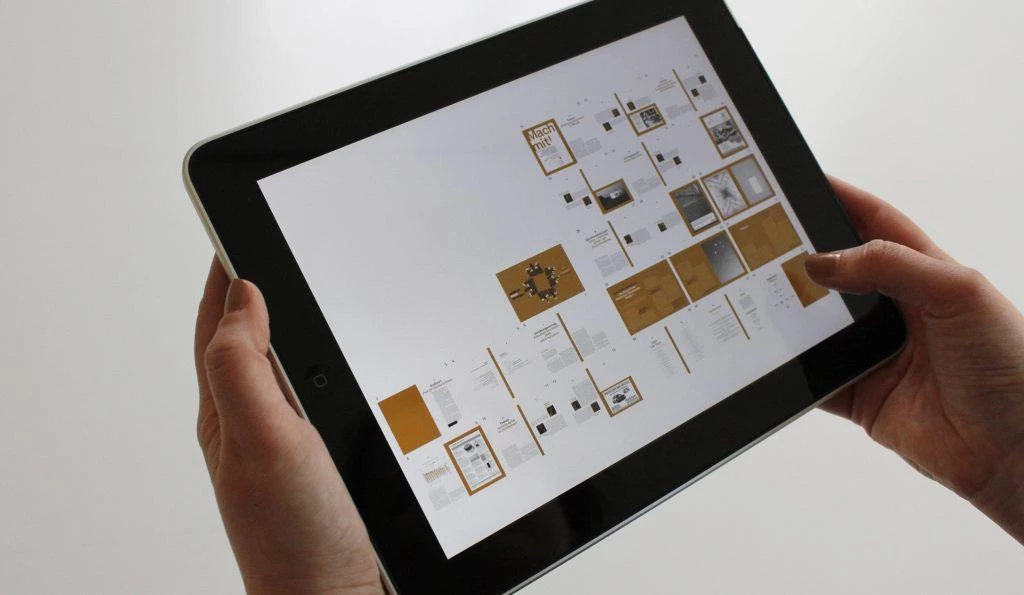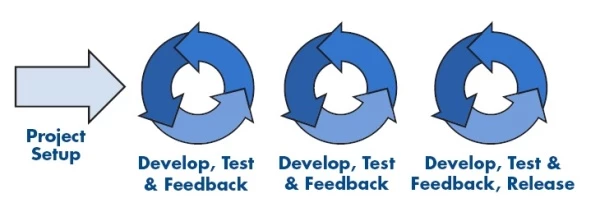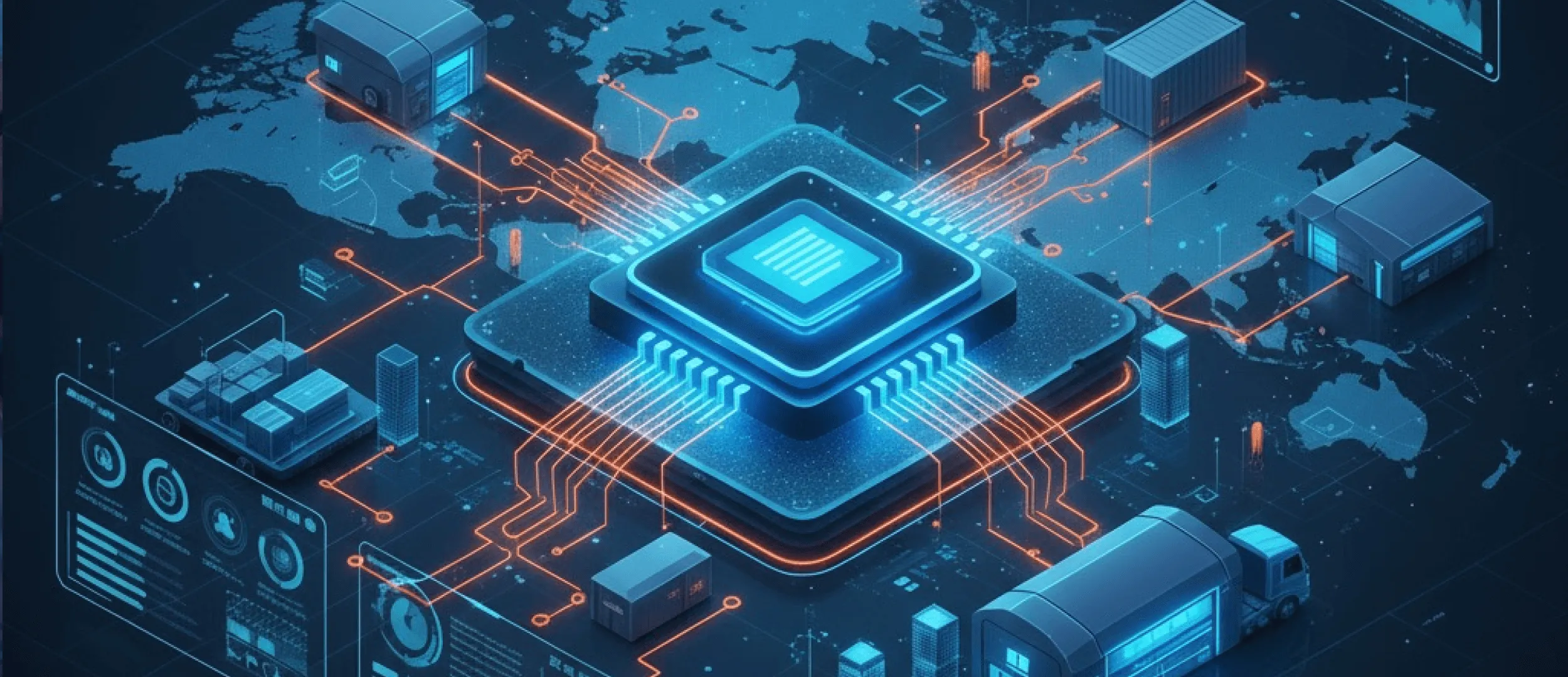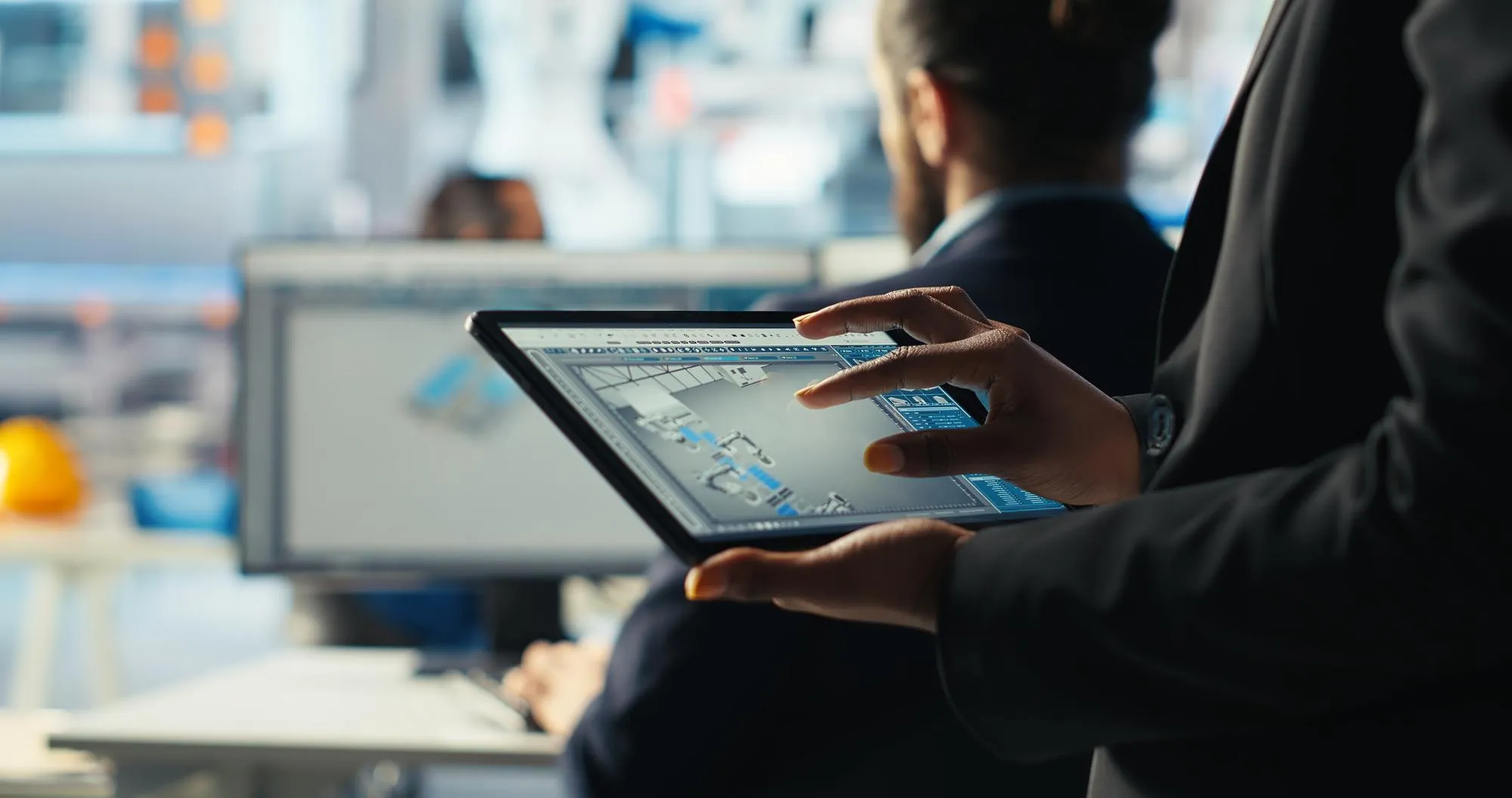
Your logistics business isn't a one-size-fits-all operation, so why should your software be? You probably found that ready-made ERP systems are expensive. This cost is not just for the licenses, but also for all the customizations, workarounds , and the frustration it takes to integrate with your specific workflows. Those most rigid platforms lack the abilities that you actually need, such as dynamic route optimization or live fleet management. As a result, you end up dealing with multiple systems and complex spreadsheets.
With our rich experience in creating custom logistics software, we've seen how the creation of custom ERP software development can take these problems and use them as a strength. Let's explore how creating a system from the ground up can provide the precision and control your business needs to thrive.
ERP Customization & Integration for Logistics Firms: When It Makes Sense
Before sinking capital into building an ERP from scratch, it's worth asking yourself: Is my firm truly situated to realize a return on a custom solution?
For most logistics-heavy companies, the answer is yes, albeit not necessarily. The decision depends upon the actual cost of utilizing generic solutions, the level of sophistication in your operations, and the clarity of your internal processes.
Debunking the Myth: "Off-the-Shelf is Always Cheaper"
Buying a ready-made ERP seems like the budget-friendly choice. But for logistics-driven businesses, the price tag rarely ends at the subscription fee.
Hidden costs you should expect with generic ERPs:
- Extensive customization fees just to make the system fit your workflows.
- Ongoing licensing and per-user costs that climb as your team grows.
- Workarounds and inefficiencies from forcing unique processes into a standard template.
- Integration roadblocks with your existing WMS, TMS, or telematics systems.
- Vendor lock-in, which can trap you in an expensive, underperforming platform.
Custom ERP development requires an initial investment, but it can provide a better return on investment over time. This is especially true for growing or specialized logistics businesses.

Scenarios Where Custom ERP Becomes the Only Viable Path
Stfalcon’s team has helped our clients with ERP system development, and we know what concerns businesses. Many businesses choose ERP because they find it frustrating to manage many spreadsheets and different services for various tasks. None of these solutions work perfectly for their needs. Even if you choose an off-the-shelf ERP solution to get everything together, you often find out it doesn’t fit your specific workflows. Here are some clear signs that you should at least consider getting a custom solution tailored to your needs:
- Highly Complex Operations. For example, cold chain logistics, hazardous materials handling, multi-modal transport, or compliance-heavy customs processes that standard ERPs can’t model accurately.
- Rapid Growth & Scalability Needs. If you’re opening new hubs, adding fleet capacity, or diversifying services, ERP customization and integration for logistics firms must scale without disrupting operations.
- Proprietary Processes & Competitive IP. If your business processes give you a competitive advantage, generic software cannot and should not try to copy them.
- Integration with Niche Logistics Tools. If you rely on specialized WMS, TMS, IoT devices, or e-commerce platforms, a custom ERP can make them work together seamlessly.
- Unique Compliance & Regulatory Requirements. Industries like pharmaceutical transportation and cross-border freight have strict standards. These standards are often non-negotiable and standard ERPs do not fully support them.
When Not to Go Custom: Quick Reality Check
Creating a custom ERP software that is tailored to an organization is a large undertaking and not always the best solution for every company. The following are the principal warning signs that a custom project would be inappropriate:
- Early-Stage Startups. If your business processes are not yet established and your operating model hasn't been validated, a custom build will be too early.
- Unclear Processes. If your internal processes are disorganized or unspecified, a custom ERP will only exacerbate the problem by automating it. You need to understand what your processes are before you can create a system to function for them.
- Limited Budget or Resources. For success, a custom project needs a clearly defined budget and clear internal resource commitment, i.e., time from major stakeholders. Absent these, the project will fail.
Want a web app that does more?
Let's build a solution that's smart, sleek, and powerful.
Alina
Client Manager

Logistics ERP Modules: Transportation, Warehouse (WMS) & Routing
An optimized ERP for logistics isn't a set of generic business utilities—it's the intelligence of your operations. The right ERP logistics module, all working together, can cut down on delays, reduce costs, and make you the master of every moving part of your supply chain in real-time. When you're deciding how to build an ERP from scratch, one of the very first big choices is determining what you need feature-wise. Here's how we do it for our customers: start with the essentials, and then add specialized modules that give you an edge.
Foundational ERP Pillars
These core modules form the backbone of any custom ERP. However, in a logistics-focused build, each is re-imagined with the unique needs of your industry at its heart.
- Financial Management. This goes far beyond basic accounting. A logistics ERP helps you analyze shipment and route costs together. This allows you to quickly see how profitable each shipment is. It tracks fuel use and costs in real-time. It also manages invoicing for various logistics services, including warehousing and international transportation. For global operations, multi-currency support is built in, simplifying international transactions and reporting.
- Human Resources. Your system should provide effective scheduling for drivers and warehouse staff. It should also ensure that you follow labor laws for transportation. The system should track the performance of logistics teams. It needs to connect important metrics, like on-time delivery rates and picking speed, to each person's performance.
- CRM (Logistics-Focused). A logistics-focused customer relationship management system (CRM) tracks pricing and service agreements for each customer. This helps make sure that commitments are fulfilled. It gives customers real-time updates on their shipment status. This keeps clients informed and helps reduce the number of support calls. A dedicated module for dispute resolution streamlines the process of handling claims and issues.
- Procurement & Inventory. This module manages relationships with suppliers for fleet parts and packaging. It ensures that important supplies are always available. It helps improve purchasing by showing real-time stock levels in different warehouses. It also includes special rules for rotating perishable items to reduce waste and spoilage.
This list may vary for your business, depending on your specific operations. For example, you may find a task management module or fleet management a must. Prioritise the most crucial modules for an MVP version of your product. The main point is: keep it lean at first and only limit your solution to features that are absolutely necessary.

Logistics Extensions: Dispatch, Fleet, WMS, ETA, Route Planning, Driver App
The foundational pillars provide stability, but the specialized modules are what really turn a standard ERP into a logistics command center. These features enable you to automate, optimize, and outpace your competition.
Transportation Management System (TMS) Integration/Module:
- Fleet Management: Your ERP becomes a central hub for fleet operations. It tracks maintenance schedules, monitors fuel use, and manages all driver-related tasks, including licenses and certifications.
- Route Optimization: This is where advanced algorithms come into play. The system creates the best multi-stop routes in real-time. It considers traffic, weather, vehicle capacity, and important delivery times to save time and cut costs.
- Shipment Tracking & Visibility: With real-time GPS integration and geofencing, you gain unparalleled visibility. The system provides automated status updates to all stakeholders and offers dedicated customer portals for self-service tracking.
Warehouse Management System (WMS) Integration/Module:
- Advanced Inventory Control. Go beyond simple counts with batch and lot tracking, expiry dates, and serial numbers. The system can automate cross-docking and use smart putaway strategies to make the best use of warehouse space.
- Warehouse Layout Optimization. The system suggests the best places to store goods and finds the quickest way to pick orders. This process saves time and reduces labor costs significantly.
- Labor Management. This module helps your warehouse staff work efficiently by assigning tasks and tracking productivity in real-time. It also ensures that labor resources are used effectively.
Supply Chain Planning & Optimization:
- Demand Forecasting. This module uses predictive analytics to forecast demand. It does this by looking at past data, seasonal changes, and outside events. This allows you to adjust inventory and resources, avoiding stockouts or overstocking proactively.
- Network Optimization. Examine your entire distribution network to find the best warehouse locations and delivery routes. This will help you reduce costs and shorten transit times.
- Supplier Collaboration. The system allows you to communicate in real time with carriers and suppliers. It tracks their performance to ensure quality and reliability throughout your supply chain.
IoT & Telematics Integration:
- Sensor Data Analysis. Your ERP system can collect and analyze data from IoT sensors. This helps you gain meaningful insights, such as monitoring temperatures for cold chain logistics, checking vehicle health, and tracking assets.
- Predictive Maintenance. By analyzing telematics data, the system can predict when a vehicle or asset needs maintenance. This lets you schedule service ahead of time, helping to prevent costly breakdowns.
How to Build an ERP from Scratch for Logistics: Development Process
Forget one-size-fits-all ERP projects. In logistics, your workflows are your competitive advantage—your ERP should follow your business logic, not force you into a generic mold.
Our recommended approach:
- Discovery phase with cross-department stakeholders – capture real needs from warehouse floors to the boardroom.
- Lean MVP definition – start with the must-have modules that deliver the fastest ROI.
- Iterative development with user feedback – adapt to how your team actually works.
- Integration-first mindset – design the ERP as a hub that connects all critical systems.

Architecture and Technology Choices That Matter
The technology you choose is the foundation to your success in the ERP application development. We suggest a microservice architecture over a monolithic one because it is more agile, easier to scale, and allows for separate updates to different functions.
With regard to deployment, cloud-native or on-prem (or hybrid) will be based on the need in your specific instance for control, security, and scalability. We select the appropriate database and API integration approaches to support high performance and seamless connectivity. For instance, we have successfully used technologies such as PostgreSQL because of its reliability, .NET or Node.js owing to robust backend logic, and Flutter to create user-friendly, cross-platform user interfaces.
Data Migration and System Integration: The Hidden Heavy Lifting
Data migration and system integration are usually the most troublesome aspects of ERP systems development. It is extremely detail-oriented work involving careful planning and execution. Data migration planning must begin early enough not to create pricey complications later on. We take you through what to avoid, such as incompatible schemas and quirks of old legacy systems. Our expertise assures seamless integration with a broad range of external systems, including third-party logistics (3PL) platforms, accounting packages like QuickBooks or SAP, CRMs, and Business Intelligence (BI) dashboards so that your new ERP becomes an integrated ecosystem.
User Experience and Role-Based Access
The best ERP in the world is useless if no one uses it. ERP success hinges on usability, and we deliberately design to avoid the clunky user experience (UX) typically associated with enterprise software. Our designs incorporate real-world access logic, ensuring that warehouse workers see only the information they need. At the same time, a finance manager has access to a different, relevant set of data, and C-level executives have a high-level overview. We build modern interfaces, often incorporating mobile-first access, and integrate tools like barcode scanners to make the system intuitive and efficient for all types of users.
Security, Compliance, and Future-Proofing
Security and compliance are non-negotiable with any ERP, especially in a high-data industry such as logistics. We build in secure architecture from the beginning using Role-Based Access Control (RBAC), granular audit trails, and secure API gateways. We also ensure the system meets logistics-specific compliance needs such as ISO, SOC 2, and GDPR. Above all, we design with the future in mind, envisioning the addition of new modules, business scalability for expansion, and supporting multi-location operations, so your investment is future-proof.
ERP System Development Cost and Timeline: What to Expect
Developing a bespoke ERP for logistics is an investment—of time and dollars—but with the right approach, it more than pays off in long-term ROI in gains in efficiency, reduced licensing costs, and more control over operations. As an ERP software development company, we understand how prices are formed and what expenses you can expect. Here, we want to break down the factors that influence the final price of your project.

Typical Team Composition
A successful ERP project requires a cross-functional development team:
- Business Analyst – translates operational needs into technical requirements.
- Project Manager – keeps timelines and budgets on track.
- Backend & Frontend Developers – build the ERP core and user-facing modules.
- UI/UX Designer – ensures usability across roles and devices.
- QA Engineers – test functionality, integrations, and performance.
- DevOps Engineer – manages deployment, scalability, and updates.
ERP Development Timeframe Breakdown
A custom ERP project isn't a race; it's a marathon with distinct phases. Here’s a general timeline:
- Discovery Phase: This initial stage takes approximately 2–4 weeks. It's where your team and ours align on the project's scope, goals, and technical requirements.
- MVP Development: Building the core functionality of your ERP will typically take from 3–4 months. This is where you get a working, deployable system that addresses your most critical pain points.
- Full Rollout: Expanding the MVP to a complete, full-featured ERP system can take 6–12 months or more, depending on the complexity of the additional modules and integrations.
Cost Ranges with Variables
The cost of a custom ERP is not a fixed price; it reflects the project's scope and complexity. While every ERP project is unique, here are ballpark figures based on logistics-focused builds:
- MVP: $100k–$200k+
- Full-feature ERP: $250k–$500k and more
Key cost variables:
- Scope: Number of modules, level of customization.
- Industry complexity: Regulatory requirements, niche workflows.
- Integrations: WMS, TMS, IoT, accounting, CRM, BI systems.
- Deployment model: Cloud, on-premise, or hybrid.
Investing in a modular ERP build helps control costs—launching with an MVP ensures faster ROI while spreading the budget over multiple development phases.
How to Choose the Right Logistics & Transportation ERP Development Partner
The wrong development partner can leave you with an overengineered, underused system that drains resources instead of optimizing them. The right one becomes a strategic ally, understanding your industry’s unique workflows and building technology around them.

Key qualities to look for:
- Proven industry expertise – Logistics, manufacturing, or other asset-heavy sectors each have their own quirks. A partner who’s built ERP solutions in your space will anticipate integration challenges and compliance requirements before they become roadblocks.
- Consultative approach – More than just writing code, they should help you define the exemplary architecture, features, and roll-out strategy for your goals.
- Structured process for discovery, architecture, and scaling – Look for a methodology that avoids scope creep, keeps stakeholders aligned, and allows for iterative releases.
- Commitment to long-term support – ERP systems evolve. You’ll need a partner ready to provide ongoing enhancements, module expansion, and performance optimization.
Our dedicated team for ERP development has delivered custom ERP platforms for logistics-heavy industries, balancing complex integrations, strict compliance, and scalability. We’ve learned that the best results come from close collaboration, lean delivery, and building a system designed to grow with your business, not hold it back.
Final Thoughts: When Custom ERP Development Makes Business Sense
Despite the initial costs, custom ERP software development is well worth the time and money if you have in mind building a flexible and innovative business of meaningful scale. ERP tailored to your company's needs helps to escape lots of workarounds and be open for new business opportunities.
The positive experience of dealing with the custom software depends on the right choice of the ERP development company. The primary demands for developers lie in the areas of understanding your business logic, code quality, iterative development practices, and readiness to work with leading-edge technologies.
Stfalcon invites you to cooperate and guarantees top development standards, proven by the high praise of our products. We are open to innovations and eager for challenges. Contact us to discuss the details of your project.




